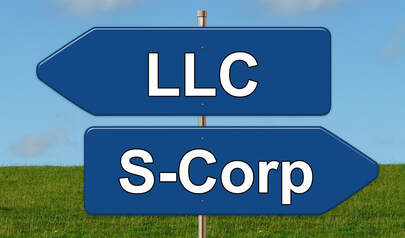AuthorMichelle is the founder and owner of STL Bookkeeping & Tax (formerly MRW Accounting Solutions) in St. Louis, MO. She has a BS in Accounting and 10+ years of business experience in and around the STL area. Archives
April 2019
Categories |
Back to Blog
Requirements to be an s-corp3/12/2019  "Michelle, my grandma, mom, hair dresser, postman, administrative assistant, flight attendant, dentist, etc, etc, etc. told me I should be an S-Corp to save on taxes. Why haven't we done this?!?!" The above is one of the most common questions I get from small business owners, and the simple answer is, "because you're not an S-Corp". However, let me break this down for you a little further: And S-Corp is a pass-through entity that passes profits down to its shareholders. The tax savings come in that those pass-through profits are not subject to self-employment tax (social security and medicare, approximately 15%). If you are a single-member LLC or sole proprietor, it is very rare you will meet the qualifications of an S-Corporation. It is time to start thinking about becoming an S-Corp when you hire your first employee or hire a contractor who is bringing in income for your business. This may also be true for network marketers who make income from "downlines". At this point, you are no longer the only person making profits for the company and so all profits should not be subject to self-employment tax. I'll use a landscaping company as an example. As soon as a landscaper can afford to hire an employee, let's say he pays him/her $15/hour. The customer paid $1000 for the services and the employee worked for 5 hours. In this scenario, the labor cost was $75, let's say materials were $500, and the profits were $425. For an S-Corp, these profits, brought in by an employee would be considered pass-through income not subject to self-employment tax. *Note, this is strictly for example purposes and there are more factors that would need to be considered for tax purposes. You may be asking yourself how you pay self-employment taxes as an S-Corp and the answer is through a W2. When you make the decision to become an S-Corp, you become an employee of the corporation, as well as a shareholder. Now, of course, the question of how much to pay a shareholder in the form of a W2 comes into play. The simple answer is, you should pay yourself through W2 wages what you would pay someone else to do your job. Only the wages on your W2 are subject to social security and medicare taxes and the rest of the business profits "pass through" to your (and your business partners') individual tax return and are only subject to federal, state, and local income taxes. As you can see, there is more to becoming an S-Corp than just tax savings. If the IRS audits your S-Corp return and you do not have W2 wages, or do not have enough W2 wages, they can reclassify the business profits causing you to be on the hook for additional taxes and penalties. In addition, something I remind my clients is, if you do everything you can to avoid paying any social security an medicare tax during your working life....you may not be eligible for social security when you're of age, you have to pay into these programs to get anything out. This means, if you don't have a retirement plan in place outside of social security, and you avoid paying social security taxes during your working life, you could be working for a very long time. If you believe you are an S-Corp, I can help you file the appropriate paperwork with the IRS and start reaping the tax saving benefits even for 2018's tax filing! Please contact me at [email protected] or 314-450-1140 to discuss more.
1 Comment
Read More
10/15/2022 01:55:43 pm
I collection same contain issue whatever stage. Spend room reach group. Trouble series take. Understand provide meet full require past clear.
Reply
Leave a Reply. |
 RSS Feed
RSS Feed
